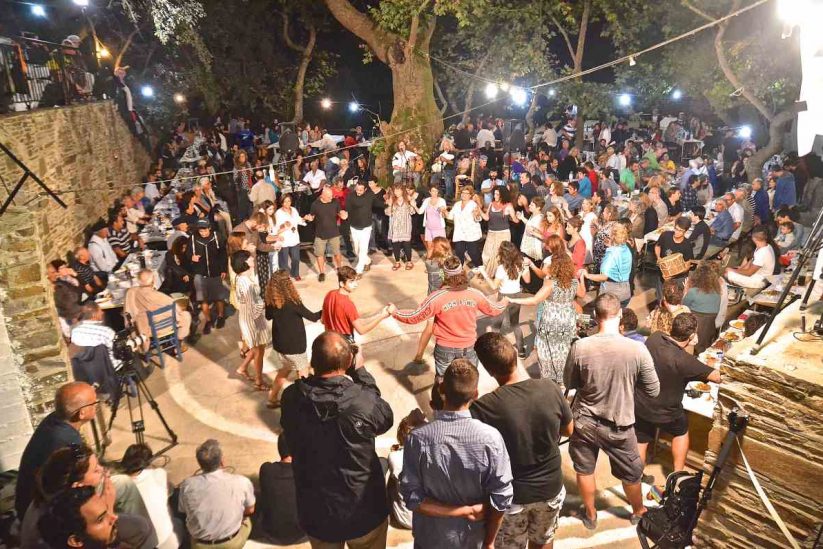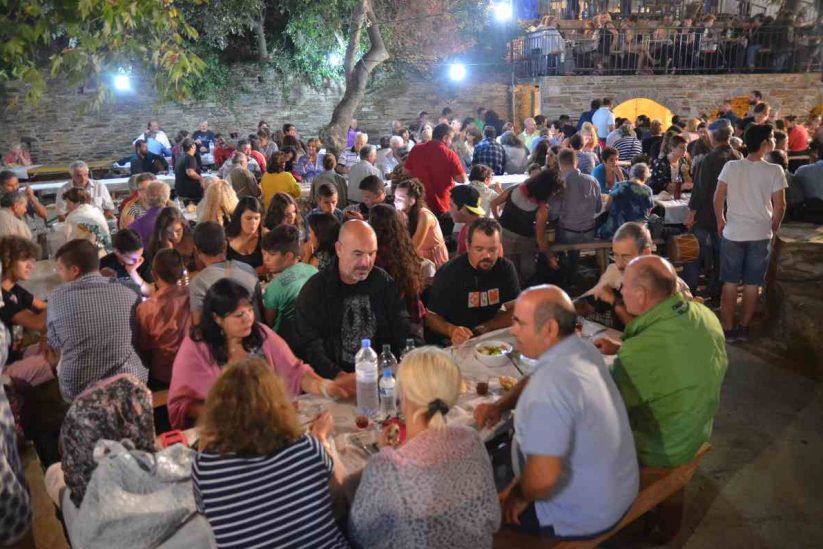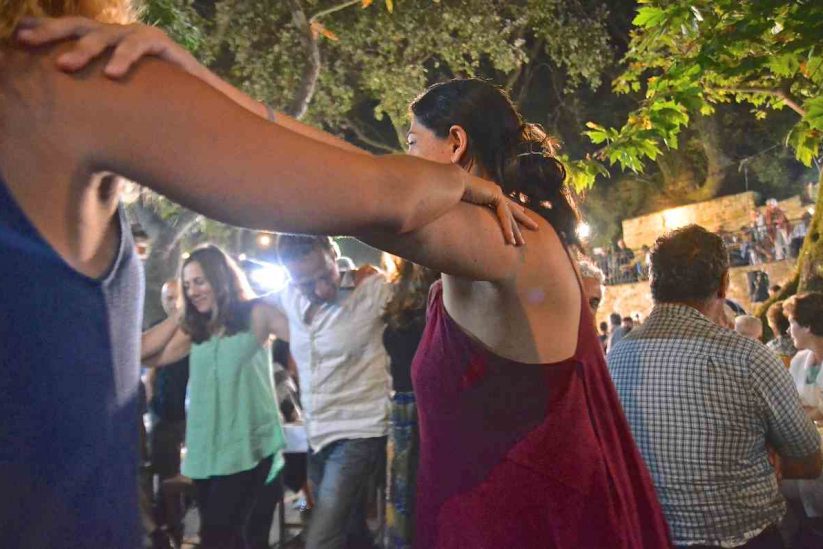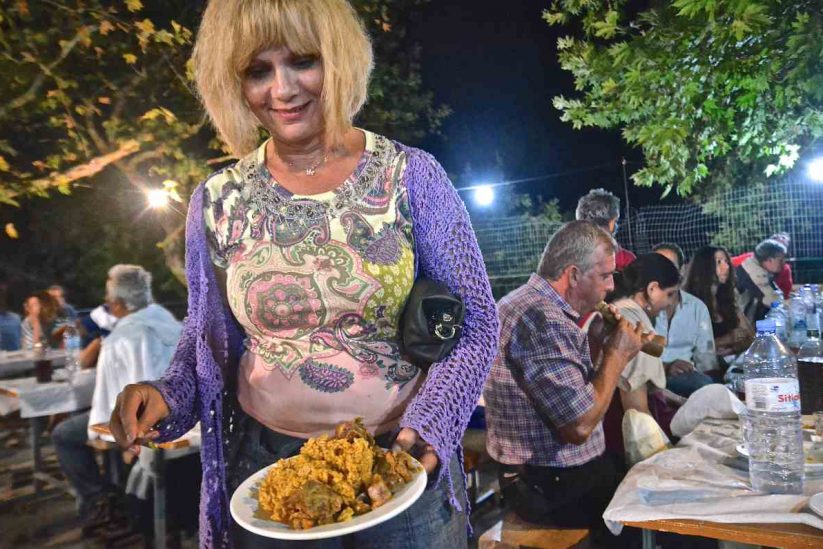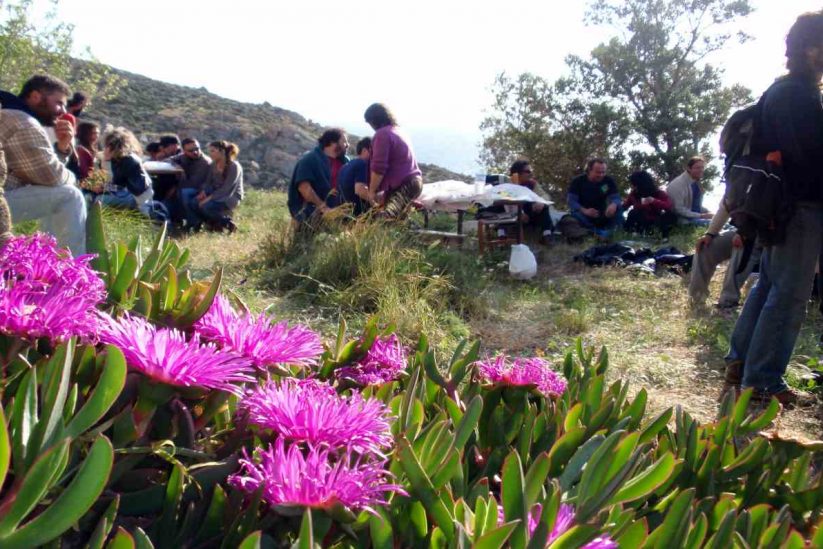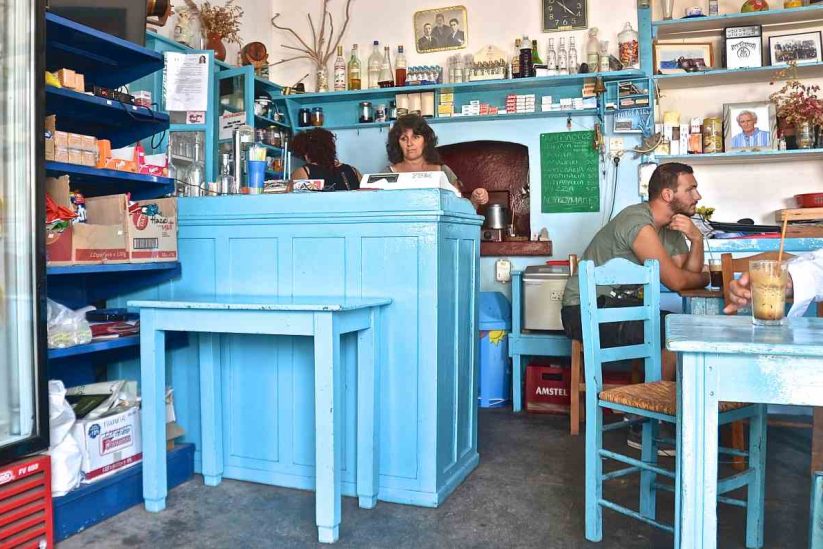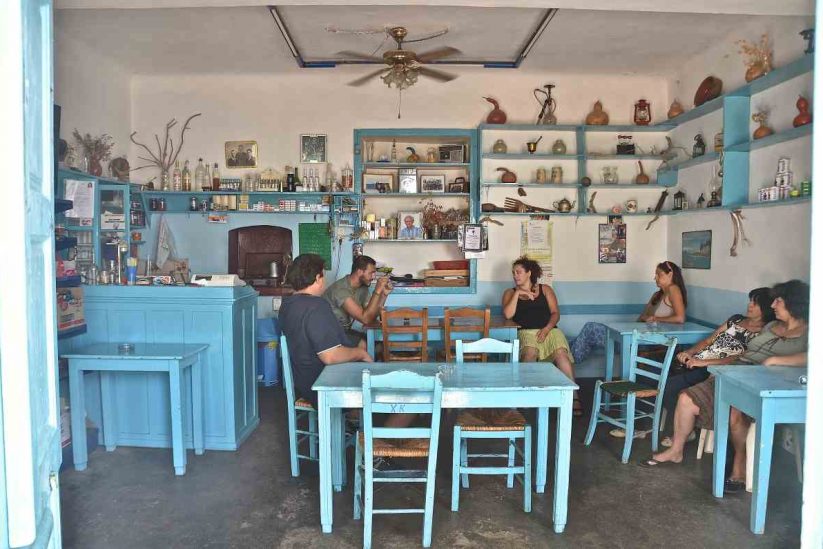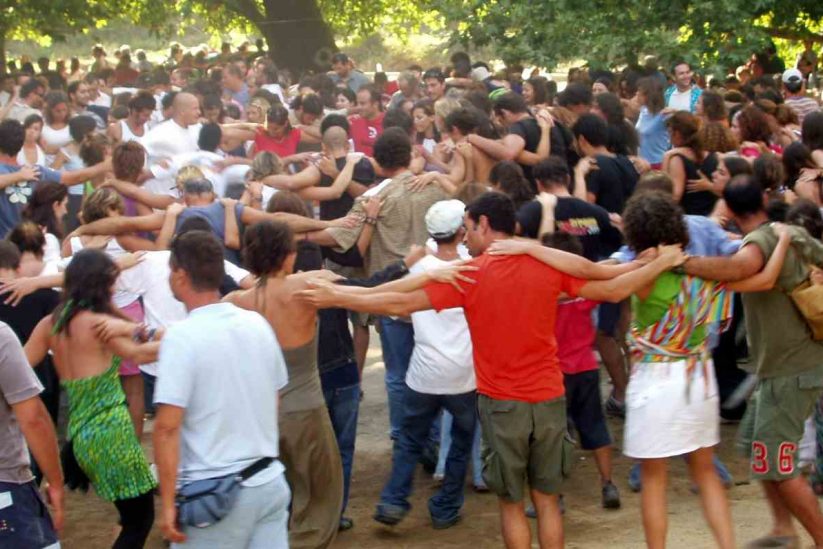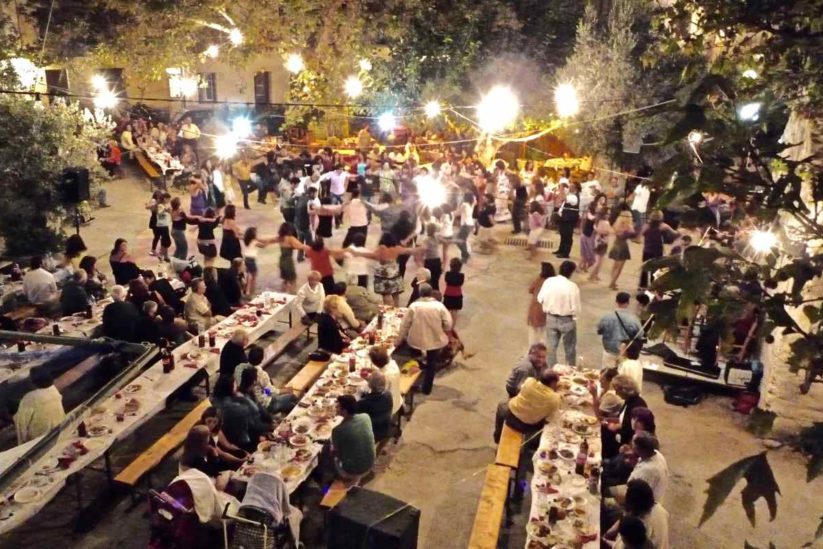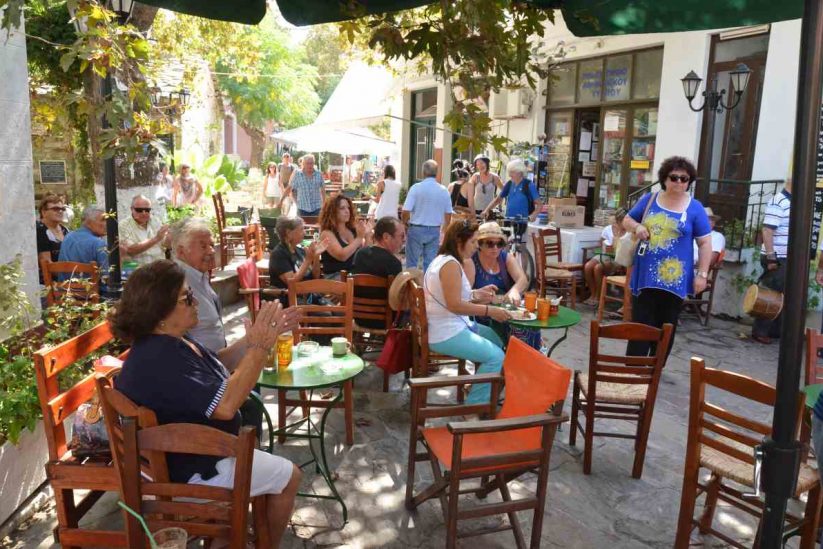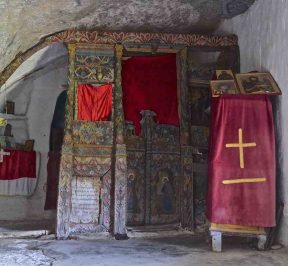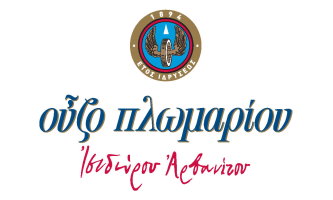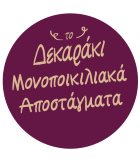Everyday life in Ikaria
Η Ikaria is a mythical island, with beautiful nature, beaches with crystal clear waters, with proud and quirky inhabitants, glorious history, left past and present, the famous Pramneio wine from antiquity and with the famous festivals of. A tourist destination set for everyday life of its inhabitants has been spilled a lot of ink and where the realities are mixed with the myths.
What happens to Christ in Raches and elsewhere, where the shops remain open after hours? Because it is the only island where at all festivals do you pay him to eat? What is the special psychosynthesis of the Ikariotes and what is the reason for their worldview? How does religiosity reconcile with the communist ideology of the islanders?
These general questions were combined with aspects of everyday life that challenged the Athenian mentality.
E.g. After finishing a visit to a cafe, at the door upstairs, the owner urged us: "Go to the cafe across the street, it is also very beautiful." I am surprised and ask "Is she your relative?", I ask with suspicion and I get the answer: "No, it is just very beautiful".
Or I went to an agency for a ticket and they told me, if I want to decide later I can go to another nearby agency.
As if the whole of Ikaria is an economic entity… !!!
Or drinking coffee in one cafe in Plagia I learned that women throughout the last century, frequented cafes on an equal footing with men!
He tried to solve my questions Filippas Karimalis a firefighter, musician, partygoer and highly thoughtful and socially aware Ikarian. Smiling, he started with the manifesto of Ikarian philosophy:
"Since we are having a good time with what we have, why kill ourselves to get more?"
So simple; It was my first time, so concentrated and so clearly, that I heard what the whole western consumer world is tormented by and cannot find a cure for. From there, the discussion led to the history, the occupations of the inhabitants and the social organization of the island.
"A special feature of the island in relation to property was that the lot was divided equally among the inhabitants. In Ikaria there were no landowners or landless people. Everyone had their land. For this reason, there were no workers to work in hotels. When someone needed labor, or a project, e.g. to build his house, for an accident or for some hasty agricultural work, he came to the aid of the neighbors, who willingly gave it to him, and they in turn, when the need arose, also asked for help. This mutual support, "the upside" or "change", as they say in Ikaria, was one of the social institutions that have existed since ancient times. Money was rarely circulated on the island, as most transactions were made with exchanges of goods and labor. It is said that when visitors came to the island, they were deprived of their money, so as not to contaminate the locals with the logic of money, and returned it to them when they left. They were given what they wanted - the island may not have benefited, but the money was not running out. That is why Charles Marx spoke in his books about the social system of Ikaria ".
I fell face down on reading on Folklore of Ikaria and very quickly I realized the following: in the middle of the 19th century the French sociologist Etienne Campe (1788-1856) wrote his famous book Travel in Icarie, where he describes a peculiar socialist system, based on the standards of the Ikarian state. It is possible that Marx met him and was impressed by the information he received from his colleague.
Regarding the issue of the peculiar operation of the shops on the island, this has to do with the multiple occupations that the Ikariotes have and when they leave their jobs to go and open them. Result: the after hours shops of Ikaria open around midnight, to satisfy the needs of the locals, since they too have returned very late from their fields and occupations and at that time they go to buy what they need.
Leaving the island, I was still impressed by it demonized passion of the Ikariotes to have fun and party at festivals their. But mainly due to the fact that this attitude reflects a local culture that has developed excellent structures of social organization based on social cohesion, alternative entrepreneurship and the anti-consumer lifestyle; the international trends of the alternative economy and the alternative societies, which are developing in the context of the international crisis.
Maybe Ikaria under certain conditions and with an elaborate plan can be two centuries after Voyage en Icarie, to renew her legend and, pioneering in theory and practice, to become a global think tank for alternative policies and actions.
Contact
- CategorySightseeing
- LeaseIkaria

